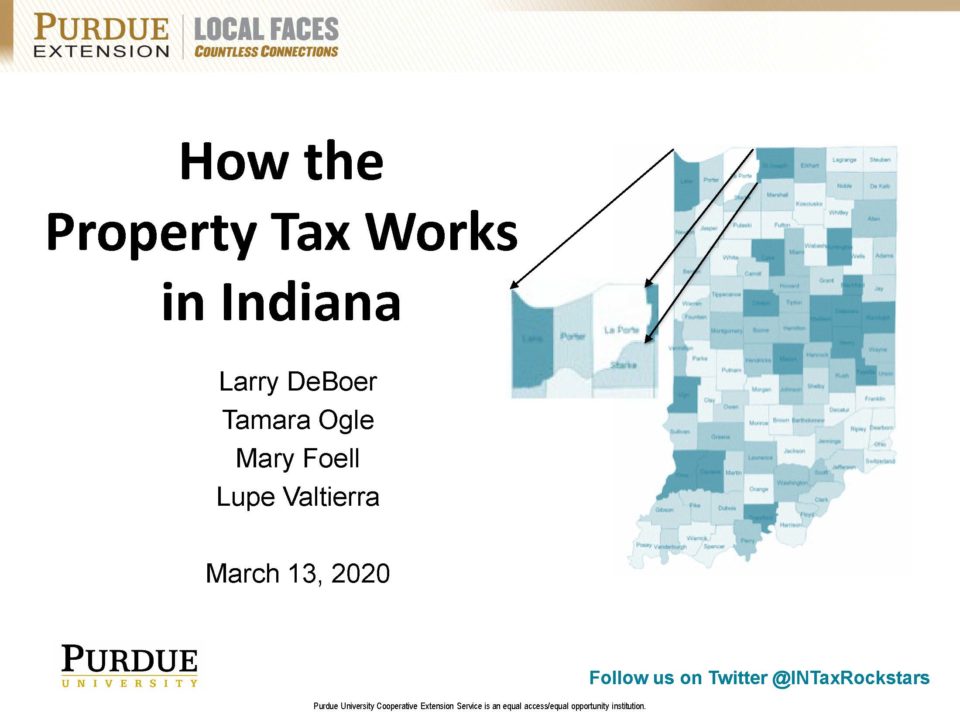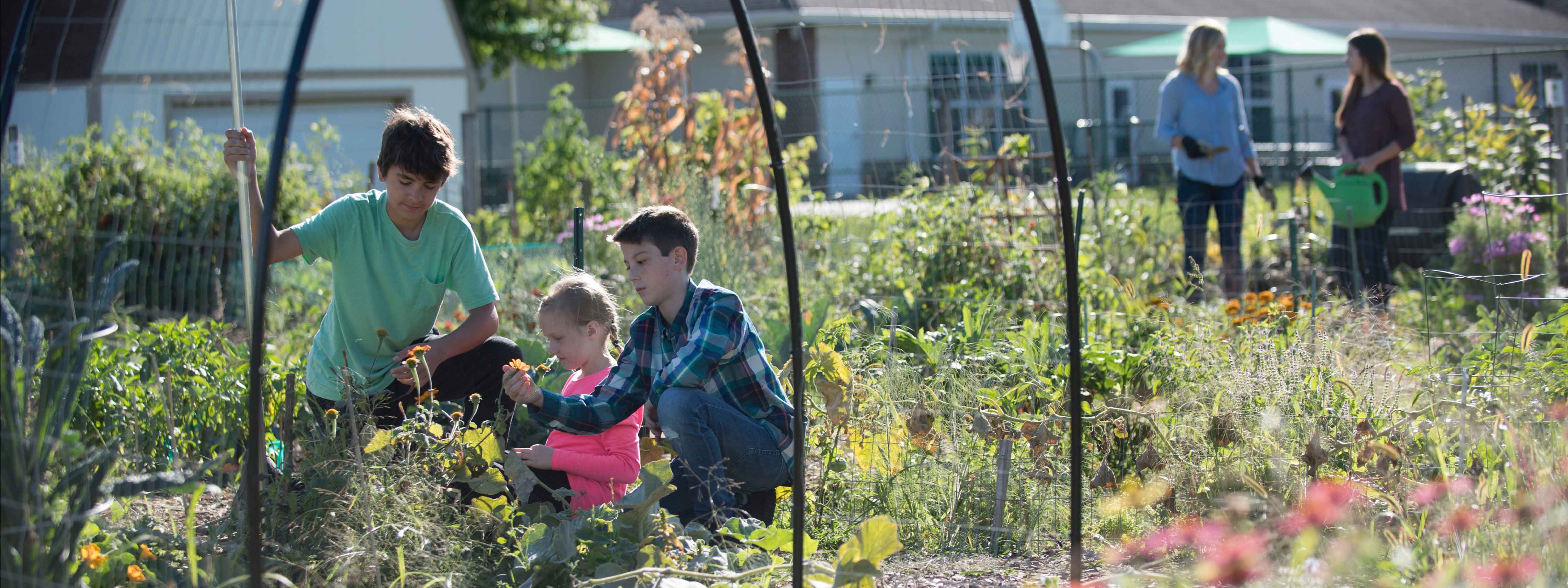Local Leaders Explore Property Tax System in Purdue Extension Workshop

Purdue Extension provided a free workshop for local leaders to learn about Indiana’s property tax system and explore trends in local and regional property tax data on Friday, March 13, at the Purdue Extension Lake County Office. Local government officials, community leaders, and residents from Lake and Porter counties participated in the workshop.
Workshop participants heard from Dr. Larry DeBoer, Department of Agricultural Economics faculty and Tamara Ogle, Extension Regional Educator, that in Indiana, each local government unit sets its property tax levy—or what it intends to collect through property taxes—based on its budget and other revenue sources.
The workshop provided the opportunity for valuable interaction among the participants who realized that often local officials from one unit many times may not see or understand how they fit into the complete property tax system. Nor do they usually have the opportunity to compare their data to others in the region or to a similar population.
Participants in this workshop learned every property parcel is served by a set of local governments—a county, a township, a school district, and perhaps a city or town, library, or special districts. The tax rates of these overlapping government units are added up to the total tax rate a taxpayer sees on their tax bill. Tax bills are then capped at 1% for homesteads, 2% for farmland/other residential, and 3% for all other property.
The workshop presented the opportunity for participants to dive deeper into these numbers as well as take a look at the data within their counties. Participants were reminded the caps provide a tax break for property owners but also create a revenue loss for local governments. Because the loss of taxes through these tax cap credits is then shared by the overlapping units, participants learned that each unit’s revenue depends on the actions of the other units.
Registration is now open for the next Local Government Finance workshop, scheduled for presentation at the Daviess County Security Center on Tuesday, May 19, 2020, from 1 – 3:30 p.m. Eastern time.


